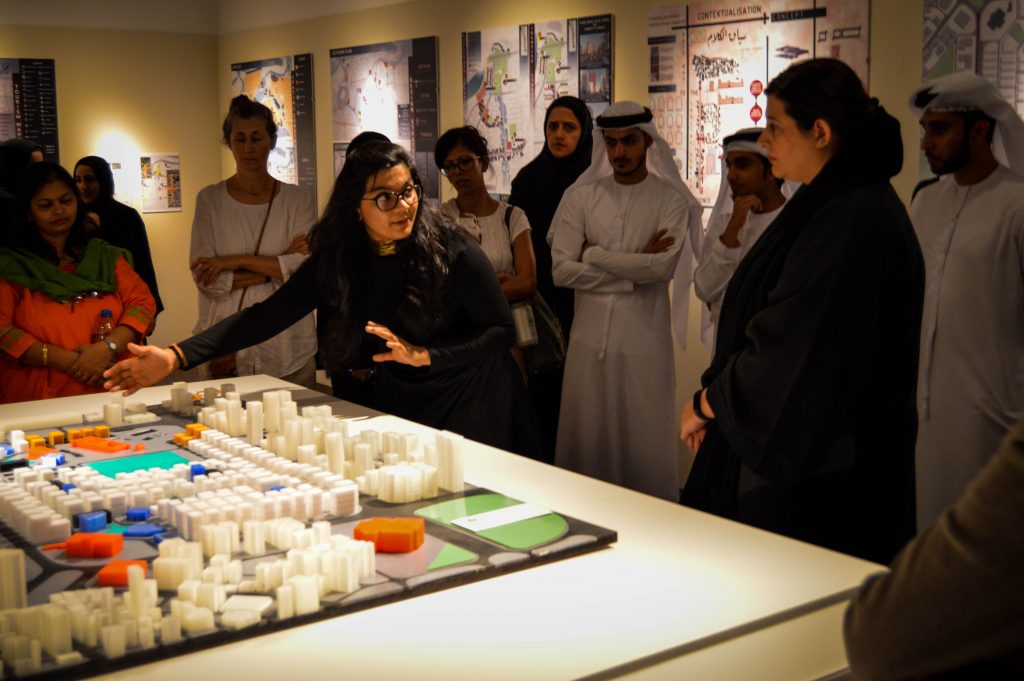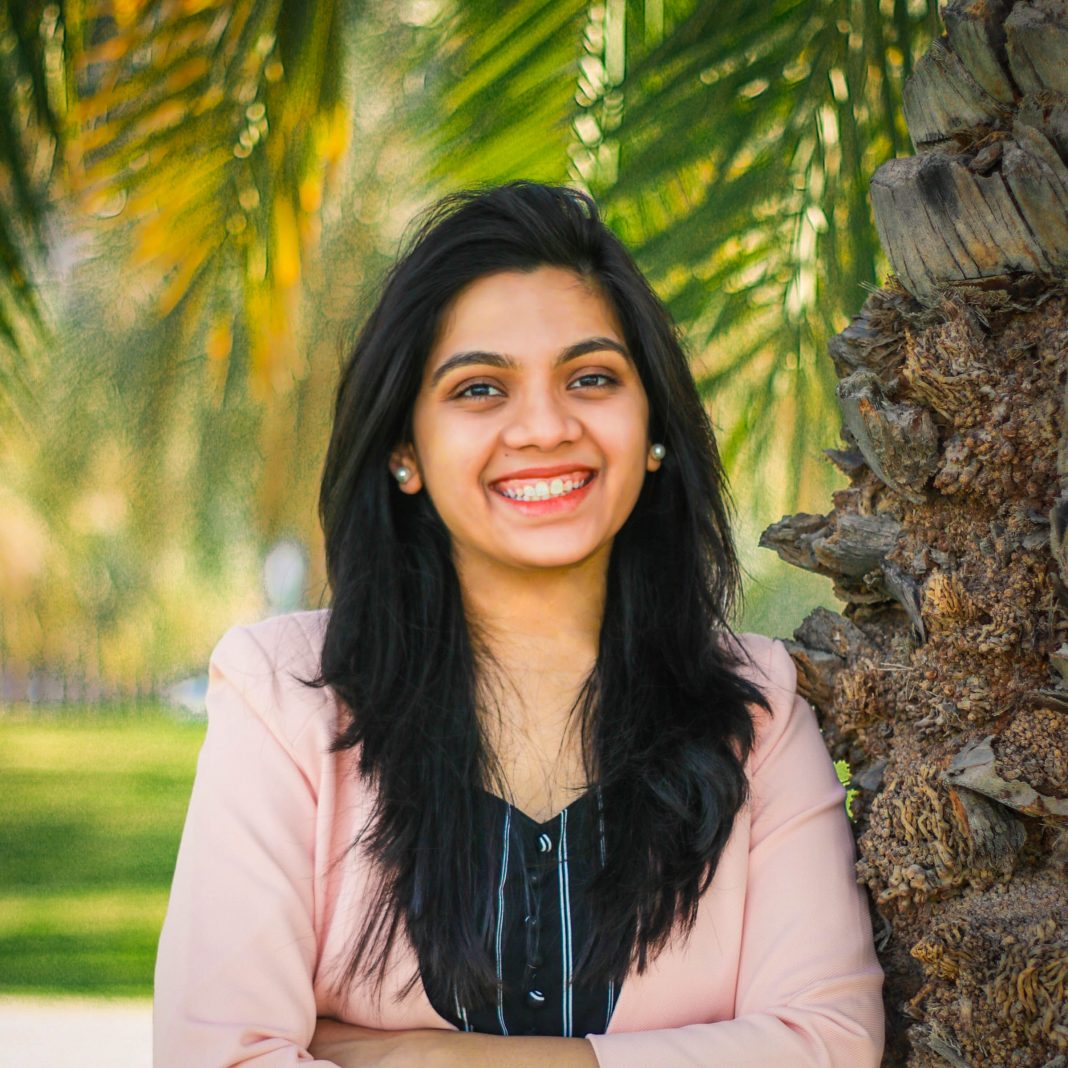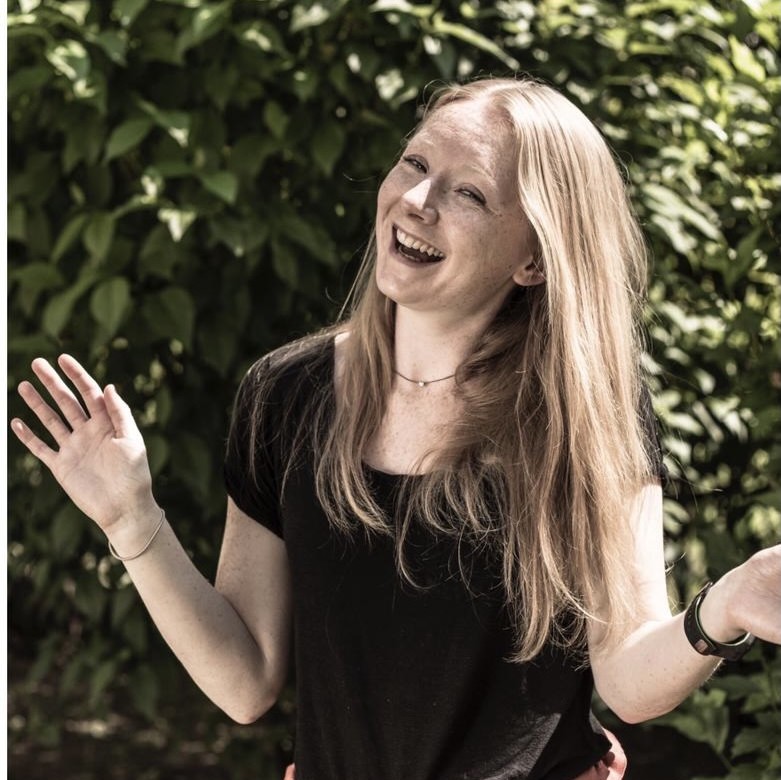From a naïve 19-year-old architecture student to working on government projects and helping achieve the UN’s Sustainable Development Goals, Shweta Gandhi has already gathered a multitude of experiences. We spoke to this Young Leader from our 2020 cohort to find out more about what she’s been up to, what her aspirations for herself and for the urban realm are, her favourite cities, and what skills and advice she would offer to up-and-coming CityChangers.
Spinning Plates
She may only be 25 years of age, but it is safe to say that Shweta already has a fair few experiences under her belt: “I’m just getting started”, she tells us. Shweta is currently juggling writing her thesis to finish an MSc in Sustainable Urban Development at the University of Oxford, working as a project officer for the SDSN Youth Local Pathways Fellowship programme, and working for AECOM as a Graduate Urban Planner; it’s a wonder that she had any time to talk to us at all! In any case, we soon learn that she wasn’t always part of the urban planning world.
So Many Cities, So Little Time…
When asked what her favourite city is, Shweta responded, “when I talk about different cities, I can pick aspects and tell you what I loved, but just picking one city is too difficult”. With so many incredible places on earth, we can’t blame her.
After much deliberation, Shweta puts Barcelona near the top of her list. She tells us how, even before she’d begun her training as an architect or urban planner, “I was enamoured by how walkable it is, how connected it is, and how the grid system works”.
“I saw in Barcelona that the experience is not just inside the building; the experience is on the street.”
If you look at Las Ramblas, the main spine of the city, she adds, there is far more going on in the outside space than in the buildings themselves, which just highlights the importance of having good public spaces. Shweta describes her trip to Barcelona as a real turning point in how she looks at cities. It just proved that “you can have streets which are human-centric, where cars are not given priority”.
Another city that left a lasting impression on Shweta is London, or more specifically Transport for London’s mastery of mobility. From the outset, London’s transport system may look highly complicated – with the options of the Tube, trains, buses, a road hierarchy, bicycles – but actually, “it shows how smart technology can become part of the urban fabric” to create an intricate, yet manageable, system. And Shweta’s final words on London? “I think that feeling of being liberated and not feeling stuck or like I was dependent on somebody, that is something that every city should offer”.
From the Top
It all started with a 5-year bachelor’s degree in architecture at the Manipal Academy of Higher Education, Dubai. During her third year, Shweta became involved in a research project as a research assistant with Sharjah Museums Authority for the Government of Sharjah. This project began as an architecture documentation exercise, looking at conservation and historic significance, aiming to develop a conservation plan for the UAE’s first ever airport, which has been standing since the 1930s. Shweta became so enchanted by the project that she also decided to base her final year thesis on it. This involved coming up with a strategy to develop an urban precinct and an experience with and in the building by considering the airport as a historic building but also as a key to tourism in the city of Sharjah.
“This was my first step away from architecture and towards the urban scale.”
In the final year of her degree, Shweta began an internship with Arcadis which came as a result of working with her mentor, an employee there, during the research project. Shweta’s 10-month internship with the urban planning team allowed her to develop a deeper understanding of what goes into an urban project. In particular, she highlights learning “about how it goes beyond design – it’s to do with policy making, with guidelines, with regulations, and it’s also to do with strategic visioning”. And there is not a hint of regret in Shweta’s voice when she talks about stepping away from architecture and entering the realm of urban planning. She tells us: “It was not a planned move, but I think my architecture background allows me to understand urban scale better.” She goes on to explain that the architecture programme taught her the meaning and significance of terms like ‘circulation’ and ‘movement’ as well as developing an understanding of the relationship a building needs to have with the road or the space around it. Shweta describes working on an urban scale as thinking about “how these clusters of buildings come together and can create a lively place”.

Just Stop, Wait a Minute
Having decided to pursue further studies, Shweta made the decision not to rush into anything before deciding what and where her next steps would take her. A well-deserved moment to stop and breathe after five intensive years of studying, interning, researching, and presenting this conservation management plan at two exhibitions.
The next phase took Shweta to the UK to study an MSc in Sustainable Urban Development on a flexible basis, which allowed her to work and study at the same time. Unfortunately, the Covid-19 pandemic has meant that the second year has been spent distance-learning. Nevertheless, Shweta has enjoyed being able to build on her prior experiences and looks at urban development from a sustainable point of view. She elaborates that this is not just about sustainability in terms of saying “that’s a ‘green building’”, but about a multi-disciplinary approach and including aspects of social sustainability too.
“It’s bringing people, places, and profit into the picture together.”
Not one to be sitting still, Shweta joined SDSN Youth on the Local Pathways Fellowship alongside her studies. This programme takes about 100-120 young urban planners, advocates, and change-makers from across the world to look at Sustainable Development Goal 11: “make cities and human settlements inclusive, safe, resilient and sustainable”. Shweta says, “it’s called ‘local pathways’ because they are looking at localisation and contextualisation in providing solutions for urban issues”. She goes on to tell us that essentially every person represented a different city, in which they identified a problem and were each developing a project to solve it by utilising the resources made available and the networking space that the programme provides. Not wanting to say goodbye too soon, and wishing to promote SDG 11 further, at the end of her 10-month fellowship, Shweta decided to apply to become a project officer on the programme. She now looks at training, operations, and content on the fellowship and, in partnership with another officer, has additionally launched a mentorship programme.
“I think going to different parts of the world makes you realise that we probably all have similar problems, but the solution has to be very contextual. It cannot be a copy-paste situation.”
What Does the Future Hold?
Shweta told us that her personal and professional aspirations for the future are two-fold. She would like to continue advocating sustainable cities to combat the current lack of awareness and try to get more people involved, for instance, through continuing her work with SDSN Youth or something similar. Secondly, after a three month summer placement, Shweta is looking forward to working at AECOM full time as a Graduate Urban Planner. She says, “it’s exciting for a young professional like me to join the Urbanism + Planning studio as it has delivered projects ranging from strategic, national plans to detailed master plans”. Referring to AECOM’s Sustainable Legacies, she exclaims her anticipation in being able to contribute to this area.
She notes that the pandemic could actually be a blessing in disguise for people in a similar position, looking out for new opportunities. It is a world-changing event that has and will continue to affect how people think about the way we live now and how things could be done differently. Shweta explains that more thought is now going into how developments can be delivered ethically and how we can be more sustainable, as well as whether there should be a top-down or bottom-up approach.
So, What About Hopes and Dreams for the Urban Realm?
- The change in thinking won’t stop there, Shweta believes. Oh no, she’s also convinced that there will be a significant shift in the general population’s mindset when it comes to urbanism. After all, she says, “urbanism is for people: whatever spaces we are designing, whatever policies we put forward – it’s all for the general public”.
“People will realise the importance of socialising, of gatherings, of just being human.”
As a result, if people appreciate these spaces and respond to the changes that urban practitioners want to implement to make things more sustainable (both for the environment and for people), then there could be some very interesting developments. You never know, perhaps it will increase awareness and subsequently speed up the rate of change towards sustainability.
2. Shweta also shares her excitement about seeing how technology will help us to design and plan better in the future. She talks about the importance of a multi-disciplinary approach to urbanism and to sustainability: “it’s not just the designers and planners who are feeding into it. It’s also about the economics, transport and the anthropological aspect of how humans interact – this is something that really excites me”. In other words, involving every dimension and integrating sustainability into every nook and cranny of our world and in every change we make.
“Sustainability should not be something that is brought in after everything else is done; it has to be part of the process while we are designing or planning or doing anything.”
3. Another hope is that we can start learning from others more successfully and following their lead. Shweta explains, if we can take note of how some countries “have managed to change and are paving the way and then try to contextualise the solutions”, we could be on to a winner. The Nordic countries particularly spring to mind, which Shweta believes are almost 10 years ahead of the rest of us in some cases.
Take a Skill Pill
We were curious about the skills Shweta has found most useful in her career so far. She offered a few more helpful tips in response.
Without hesitation, the first skill that comes to Shweta’s mind is the importance of critical thinking: analysing and questioning everything. “Even the most mundane things”, Shweta adds. This is a skill that can help you develop as a person and help develop your technical understanding while also opening doors and offering solutions.
Second on the list: Shweta emphasises the importance of networking. She says this often falls by the wayside and is taken for granted by young people. But networking is about give and take. Shweta tells us: “You learn so much and you can give so much back: it’s a cycle that will help you grow individually, professionally, and help society grow too”. So, get outside your bubble and put your ideas out there. Equally, “if someone reaches out to you, respond!”, Shweta rightfully points out.
The final tip that she highlights: “Read. Read a lot. Just information.” By reading you’ll often learn that the concepts we are talking about now are not new, they are simply presented differently or given another name. Shweta advises, “by being open to reading more, watching more, being more present, keeping your eyes open, and having an open mind, you can absorb a lot”.
Wise Words
From a professional perspective in terms of urbanism, our Young Leader cannot underline the importance of contextualisation enough: “context is key.” No solution can be copied and pasted directly to another city. For urban practitioners, Shweta’s words of advice are these: “You have to understand the culture, the geography, the demographics and, in the end, what the people want. That’s when you can deliver the best results.”
To conclude our chat, Shweta offers some words of wisdom that she herself has received and benefitted from: find yourself a mentor, someone you can have discussions with and ask questions to. Equally important to Shweta is letting people know that “as somebody striving for change, it is going to be difficult, but just keep on it”. This is where a mentor could be really helpful.
“Make yourself so strong that one day you make your own brand and job description – a company or a job title does not define you. Keep going and celebrate small wins – as they are soon going to become massive accomplishments!”
Though not easy, Shweta says, “if you are ready to learn and have a belief system” then this will make things easier. Perseverance is crucial, it seems. So, CityChangers, you’ve heard it here: strive for change, keep on it with eyes wide open, and absorb and network as much as possible.



Super 💞
Congrats and may you grow and achieve all the dreams